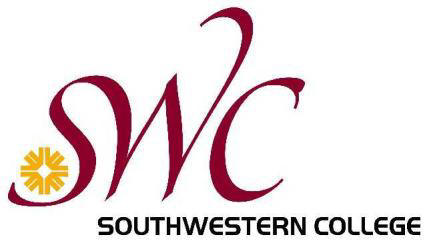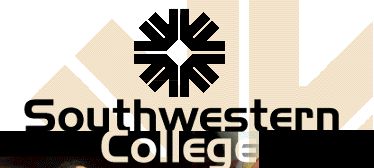|
Course Description |
-
CCNA Exploration teaches
networking based on technology, covering networking concepts
using a top-down, theoretical, and integrated approach – from
network applications to the network protocols and services
provided to those applications by the lower layers of the
network. CCNA Exploration includes the following features:
- Students learn the basics of routing,
switching, and advanced technologies to prepare for Cisco CCNA
certification and entry-level networking careers
- The curriculum discusses networking
concepts in depth and uses language that allows for integration
with engineering concepts, providing a deep, theoretical
understanding of networking concepts for experienced learners
with advanced problem-solving and analytical skills.
- Courses emphasize critical thinking,
problem solving, collaboration, and the practical application of
skills
- Rich multimedia content, including
Flash-based interactive activities, videos, games, and quizzes,
addresses a variety of learning styles and help stimulate
learning and increase knowledge retention
- Hands-on labs and Packet Tracer
simulation-based learning activities help students develop
critical thinking and complex problem solving skills
- Innovative assessments provide immediate
feedback to support the evaluation of knowledge and acquired
skills
- Provides students with the skills needed
to succeed in networking-related degree programs
|
|
Course Objectives |
show and debug commands to troubleshoot common errors that occur in small
routed networks
|
|
Course Materials |
USB Stick
Prerequisites: Required: Completion of CIS 142, CCNA or
equivalent.
Students should have the following skills and knowledge.
- Basic PC skills
- Basic Internet navigation skills
No text is required for this class. Cisco provides all
course materials online
Cisco on-line curriculum is the property of Cisco Systems
and MAY NOT BE REPRODUCED IN ANY FORM. Reproduction of this
material is cause for dismissal
|
|
GRADING |
Students receive two grades in the course; one from Cisco and one
from Southwestern
It is
possible to pass the Southwestern course but not meet the standards
required by Cisco to go on to the next CCNA course
You
must meet Cisco standards to continue to the next level of CCNA
20%
Each of the Units above are worth 2 points (percent) of the final
grade
15%
Hands-On Final
15%
Labs and Packet Tracers as outlined above
50%
Final Exam
|
|
Units |
-
Units are accessible online with provided student accounts
-
Students are expected to study each Unit and be prepared for the
nightly lessons
-
This is not a "self-study" course. We will teach each unit with
teacher prepared PowerPoints. Every concept in the curriculum
will be reviewed by the teacher
-
Each of the Units has an accompanying quiz. Look upon the
quizzes as a learning tool, rather than a measure of knowledge
-
Students may retake the quizzes if they are not satisfied with
their grade
-
You are encouraged to ask the teacher for help with any concepts
that are giving you trouble.
-
Students are not permitted to take quizzes at home - must be
done in class
|
|
ATTENDANCE |
-
Students are expected to come to class on time (5:00 PM)
-
Since this is an 8 week course, missing one class is like
missing a week of a semester
-
If
for some reason you are not able to attend class, inform the
teacher
-
If
you decided to drop the course, make sure you do an official
drop through the College
- Absences & Tardiness:
- Any student with excessive absences, late arrivals and/or
early departures will be eligible to be dropped. Excessive
tardiness or leaving early is defined as arriving late or
leaving prior to the completion of class more than three times.
Tardiness/leaving early beyond the third incident usually
results in the student being dropped. If any student is in
excess of 15 minutes late or leaves more than 15 minutes prior
to the end of class, said student will be considered absent for
the entire class period. If you are more than 15 minutes late
for a test, you will not be eligible to take the test.
Unavoidable absences must be cleared with the instructor
via e-mail before the absence occurs.
|
|
Holidays |
|
|
Disability Support Services |
Southwestern College recommends that students
with disabilities or specific learning needs contact their
professors during the first two weeks of class to discuss academic
accommodations. If a student believes that they may have a
disability and would like more information, they are encouraged to
contact Disability Support Services (DSS) at (619) 482-6512 (voice),
(619) 207-4480 (video phone), or email at
DSS@swccd.edu.
Alternate forms of this syllabus and other course materials are
available upon request.
|
|
Academic Success Center
Referral
|
To further your success, reinforce concepts, and
achieve the stated learning objectives for this course, I refer you
to the Academic Success Center learning assistance services. Upon
request for tutorial services, you will be automatically enrolled in
NC 3: Supervised Tutoring, a free noncredit course that does not
appear on your transcripts.
Services are located in the ASC (420), the Writing Center (420D),
the Reading Center
(420), Math Center (426), the Library/LRC Interdisciplinary
Tutoring Lab, MESA,
specialized on-campus School tutoring labs, the Higher Education
Center, and the San
Ysidro Education Center. Online learning materials and Online
Writing Lab (OWL) are available at www.swccd.edu/~asc.
Southwestern College recommends that students
with disabilities discuss academic accommodations with their
professors during the first two weeks of class.
This syllabus and course handouts are
available in alternate media upon request.
I am credentialed by the State of
California to teach in all of the Special Education areas
If you need special help, let
me know. |
|
Behavior/Discipline: |
- As adults, students are expected to
behave in a mature, responsible manner.
- Disruptive behavior will not be tolerated and will result in
suspension from the class for the day, please refer to the SWC
Catalog for additional information.
- A positive and safe learning environment will be maintained
at all times
- Software packages in the lab contain copyright material.
Students cannot copy (in whole or in part) any software
application. For detailed requirements, refer to the SWC
Catalog.
- Be sure ALL discussion posts, email, and assignments
submitted respect all persons and groups and in no way contain
any lewd, indecent or obscene material.
- Additional information is found in the SWC Catalog
|
|
Academic Integrity: |
Cheating is NOT allowed and a failing grade of
"F" will be assigned to any student guilty of cheating, copying, or
allowing others to copy your work. This behavior is unethical and
will not be tolerated. For more details, refer to the SWC Catalog.
|
|
|
|
|
 |


